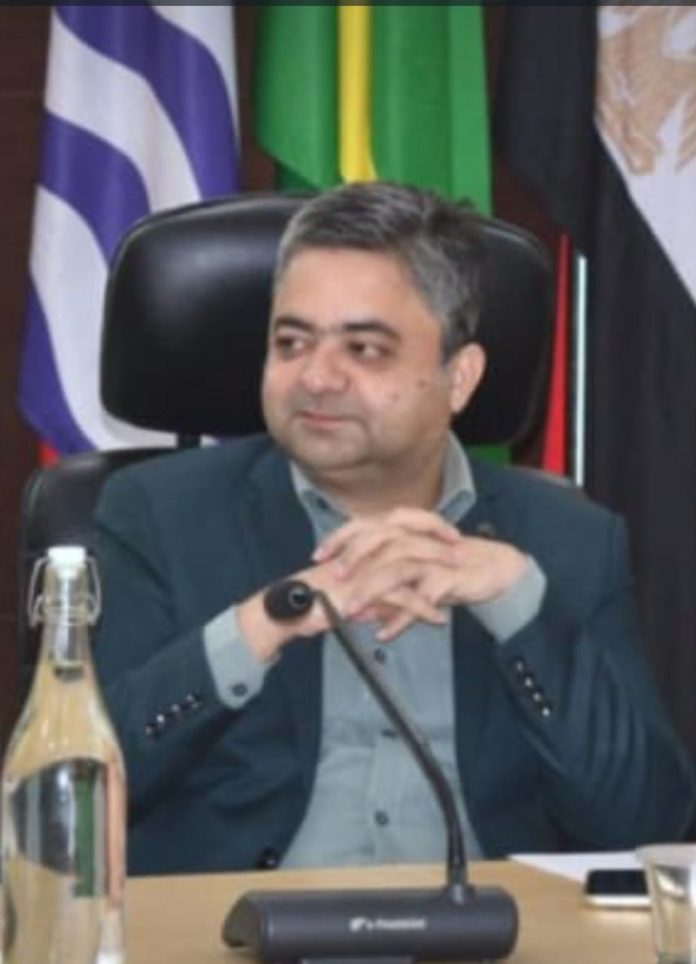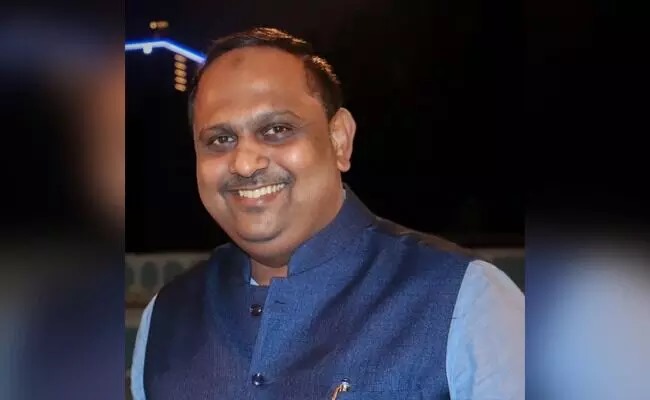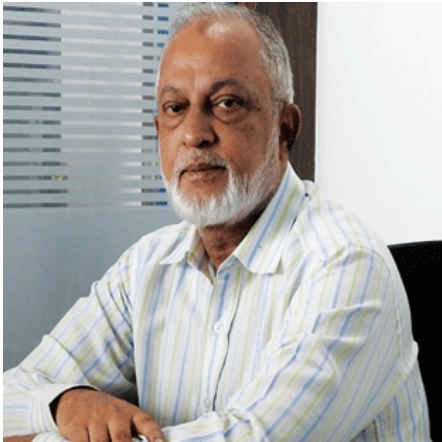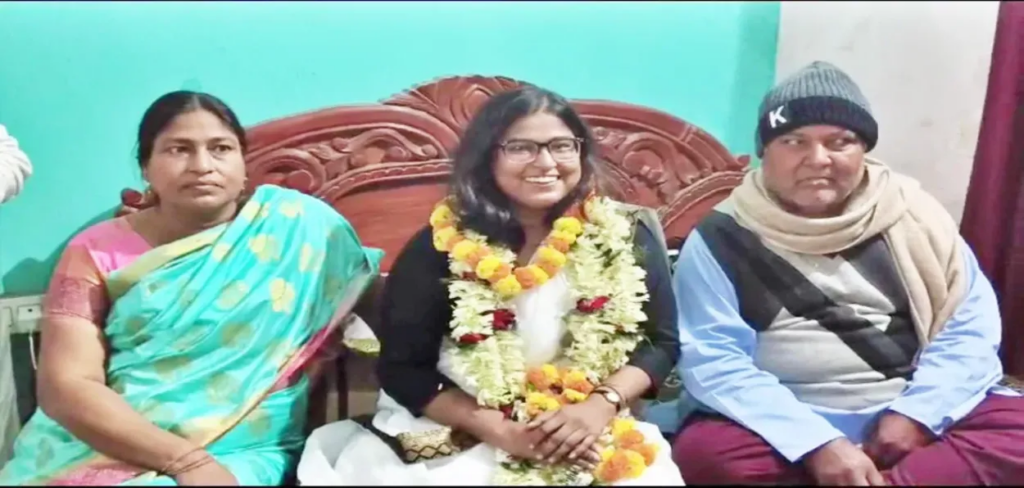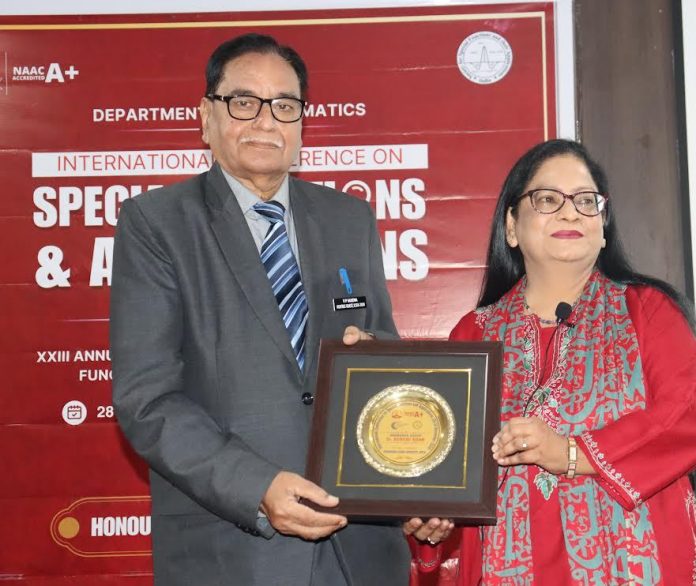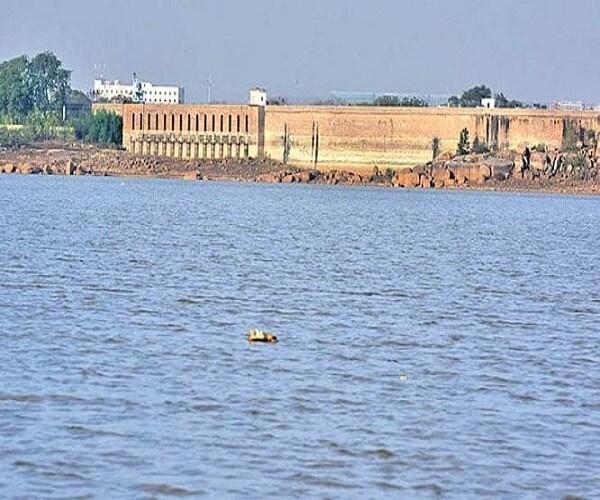Hyderabad, TELANGANA :

The philanthropist transformed neglected Wakf properties into exemplary educational institutions
Hyderabad :
Khaja Mohammed Arifuddin, celebrated academician, dynamic educationist and one of the founding members of the 1969 Telangana agitation movement, popularly known as KM Arifuddin, breathed his last on Monday. He was 77.
Arifuddin is irrefutably regarded as one of the most powerful educationists in the history of Hyderabad who helped thousands of families fight darkness by illuminating their minds and homes with education, in the process pioneering ‘modern and Islamic education’, a concept that has now promoted by many institutions largely for commercial merits.
The institutions he founded continue to benefit scores of students, including those from society’s weaker sections at different educational strata.
An advocate by profession in his early career, he employed his legal acumen to prevent the misuse and illegal occupancy of Wakf properties in Hyderabad. As a young activist, Arifuddin raised slogans, protested against exploitation and encroachment of Wakf lands, and pioneered an educational movement nearly 40 years ago that continues its momentum in the form of the Madina Group of Institutions and Global Group of Institutions, where thousands of Muslim and even non-Muslim students had the privilege to access modern education in an institution built on Muslim values and Islamic teachings.
He successfully led the movement in freeing the Wakf properties from illegal occupancy in 1977, and was instrumental in transforming them into educational centres with academic and disciplinary standards unprecedented for any minority institution of the time.
By fighting for winning the case and transforming the Wakf land into an educational centre, he set a prime example on how Wakf properties can be rightly used for the benefit of the community. In his own words, social success can be achieved by “conventional reimbursement of the Waqf properties and education”.
On August 15, 1982, former Governor of Orissa Padmabhushan Mir Akbar Ali Khan laid the foundation stone of the Madina Public School. He set up Madina Public School under the aegis of Madina Education and Welfare Society (MEWS), followed by Madina Degree College for Girls in 1983. Promoting education of girls, and making them self-reliant was his dream. In 1984, Prince Muffakham Jah Bahadur inaugurated the new block of Madina Public School.

His uncompromising academic standards and meticulous discipline helped his altruistic yet relentless educational pursuits in establishing 14 educational institutions from K.G. to P.G., including Madina Public Schools, Global College of Pharmacy, Global College of Business Management, and Global College of Engineering and Technology.
These educational power houses over the years have become the pride of the community under his tenure as the Secretary of Madina Group of Institutions. Several notable leaders of national repute, including former Prime Minister of India Chandrashekhar, former President of India Dr A P J Abdul Kalam, Dr Shankar Dayal Sharma, Farooq Abdullah, Indian’s Union Law Minister Ram Jethmalani were among several others who visited the Madina Public School in the past and appreciated its standards of education.
His patriotic fervour reflected in the several initiatives he pioneered with nationalist sentiment. He conceptualised and granted monthly pensions for freedom fighters of Hyderabad, instituted an educational scholarship of Rs 1 lakh in the name of his deceased son K.M. Razi (IRS) Memorial scholarship for helping aspiring civil service aspirants qualifying the preliminary exams. The Madina IAS Hostel was built for this purpose.
MEWS, as part of its philanthropic initiatives, also provides pensions to widows, funds Muslim and non-Muslim welfare organisations.
In 1989, he constituted the Madina Gold Medal to recognise the talents and achievements of outstanding students at regional and state levels. The first medal was awarded to Dr Ausaf Sayeed in 1989, who is currently the Indian Ambassador to Saudi Arabia. The tradition still continues even after more than 30 years.
He was the co-founder and Editor of Awam, an Urdu daily in the late 90s. His weekly column titled Zara Ghaur Kijiye published in Urdu newspapers in Telangana inculcated social activism among the masses by throwing light on the pressing social and economic issues.
Arifuddin, born to Mohammed Qamaruddin in August of 1944, hopped different government Urdu medium schools to complete his schooling, and post-graduated in Law from the Osmania University in 1974. He was the first Muslim graduate to be elected as the Vice President of Students Union of the Osmania University, and was one of the founding members of the Telangana Separation movement in 1969, for which he served a brief time in jail.
Even until a few weeks before his demise, he kept discussing empowering Muslims and the weaker sections with education, knowledge and by securing berths in Indian Civil Services. Arifuddin is survived by two sons K.M. Fasihuddin, K.M. Minhajuddin and daughter Maria Tabassum who must shoulder the burden of great responsibility Arifuddin left behind in his legacy, while living the life of an ascetic despite all the talents and many intellectual virtues.
Earlier, his body was kept at the Madina Public School he founded in Himayathnagar to allow the public to pay homage. In the evening, Arifuddin’s funeral prayers were offered at the Royal Mosque of Pubic Gardens where a large number of intellectuals, academicians, heads of different educational institutions, former lawmakers, civil servants, alumni of the institution and senior community members were present. He was laid to rest at the Osman Nagar graveyard. The great scholar’s departure is an irreparable loss to the Hyderabadi and the Indian education community.
source: http://www.clarionindia.com / Clarion India / Home> India> Politics / by Syed Khaled Shahbaaz, Clarion India / December 07th, 2020
